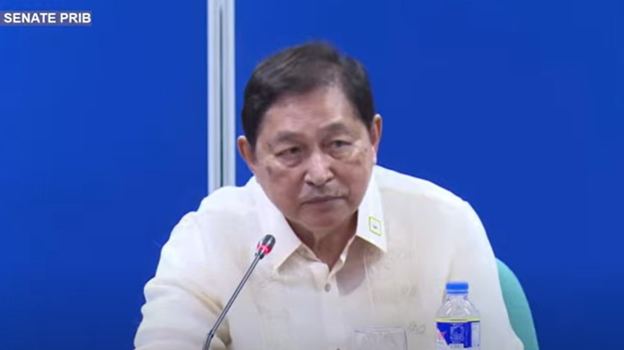Warrant vs. Duterte ‘legal,’ surrender was not – Azcuna

Courtesy: Senate PRIB livestream
Retired Supreme Court associate justice Adolfo Azcuna Jr. said the warrant of arrest issued by the International Criminal Court (ICC) against former President Rodrigo Duterte was legal, but the act of his surrender has violations.
Azcuna said the warrant of arrest is legal, however, I believe that the surrender is not. Because the surrender must be pursuant to a treaty and therefore our own law, Section 17 of Republic Act 9851, brought back the statute of Rome even after withdrawal because it requires that a surrender must be pursuant to the applicable treaty.
He added that the Philippines still has “residual obligations” even after its withdrawal from the ICC in 2019. Because of this, he said the country still has to cooperate with the warrant of arrest issued by the judicial body even after the Philippines’ withdrawal.
“And therefore, in this case the applicable treaty remains the statute of Rome and thus, we have to follow Article 59 of the Statute of Rome that requires that the custodial state—namely the Philippines—must first bring the arrested person to a local court to determine two things,” he added.
These two things, he noted, are whether or not the person is really the one named in the warrant, and whether or not the person has been informed of the charges against him or her.
“This was not done. Therefore there was, in my view, a violation in the act of surrender,” Azcuna said.
Azcuna said different rules apply in the forum of the ICC, as compared to that of the Philippines.
He said the ICC may have also followed what is called “male captus, bene detentus,” meaning that “even if the arrest is illegal, the detention can be legal, it does not automatically mean that if the arrest is illegal, the person arrested must be released.”
“It’s a balancing act. They will balance the illegality of the arrest with the need to prosecute someone for very serious offenses under international law. And in their view the balance weighs in favor of prosecution, they will prosecute notwithstanding the violation of the procedure in the…surrender,” Azcuna said.
“Therefore it depends on whether you’re talking about Philippine forum or the ICC. The ICC, I believe, will follow their own procedure. Whereas in the Philippines, as it is now pending in the Philippine Supreme Court, in my view, there is a violation and there will be consequences for that violation,” he continued.
Section 17 of Republic Act 9851 or the Philippine Act on Crimes Against International Humanitarian Law states that: “In the interest of justice, the relevant Philippine authorities may dispense with the investigation or prosecution of a crime punishable under this Act if another court or international tribunal is already conducting the investigation or undertaking the prosecution of such crime. Instead, the authorities may surrender or extradite suspected or accused persons in the Philippines to the appropriate international court, if any, or to another State pursuant to the applicable extradition laws and treaties.”






